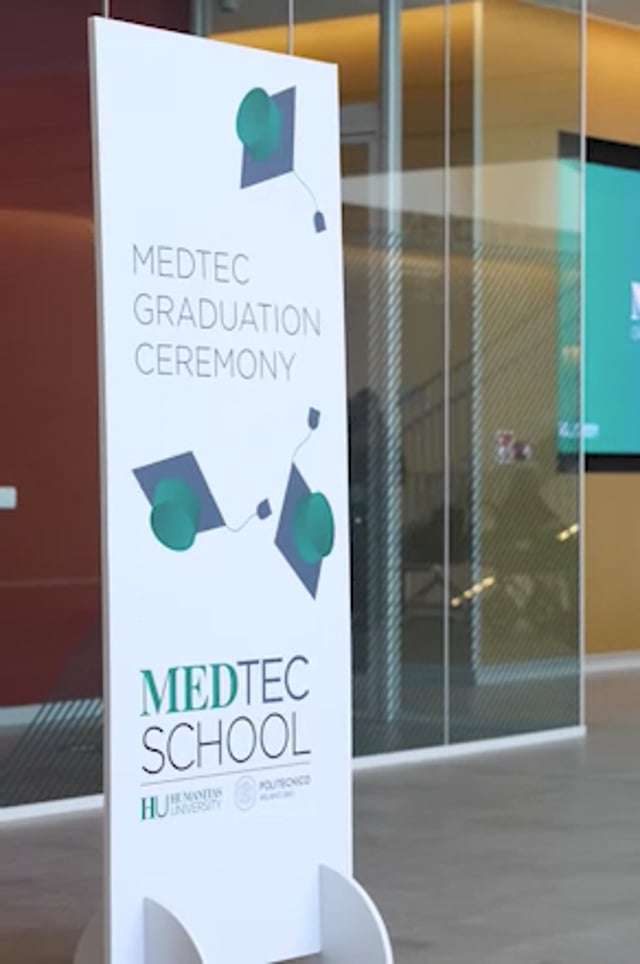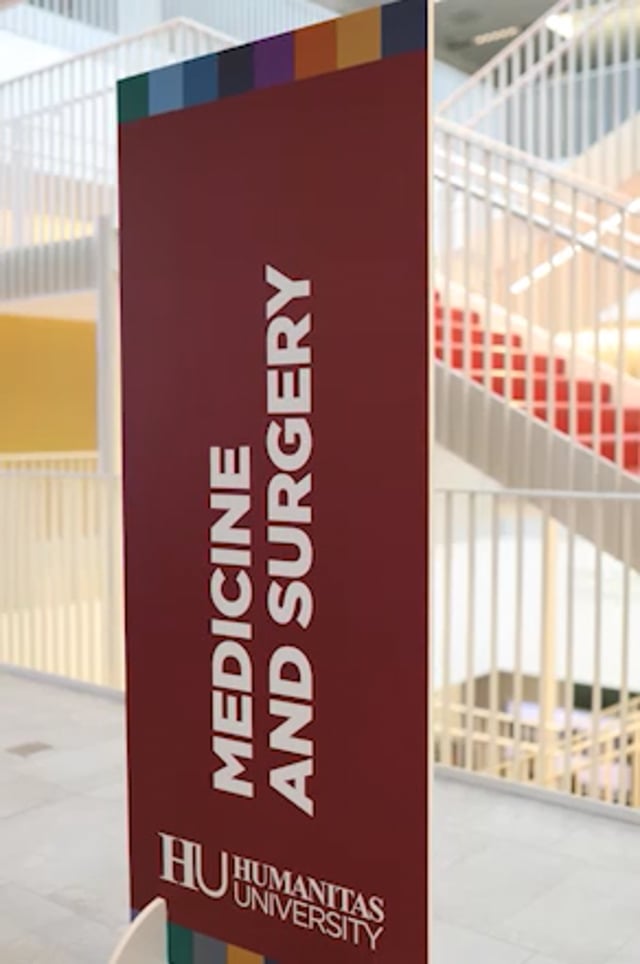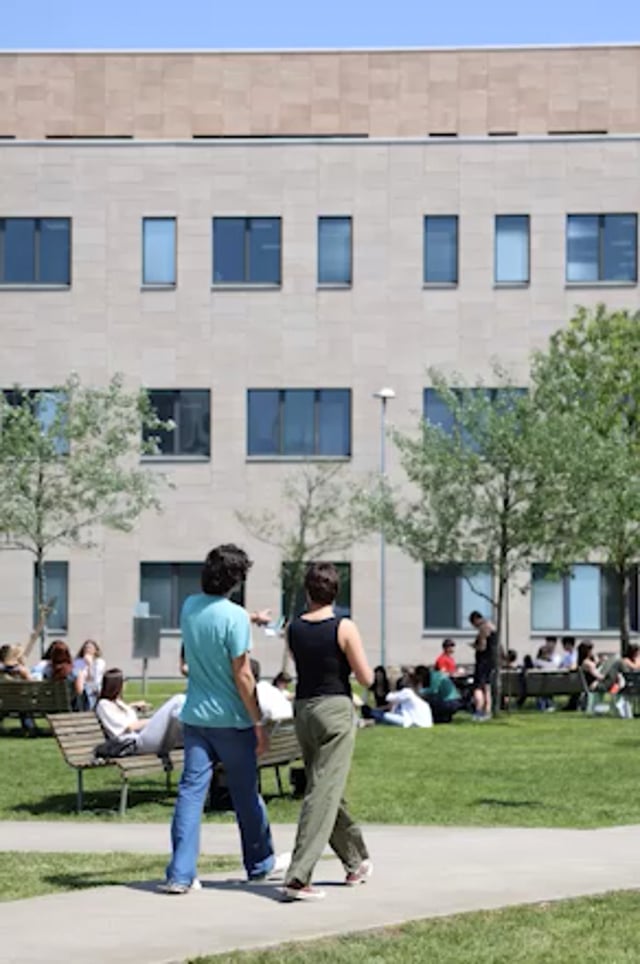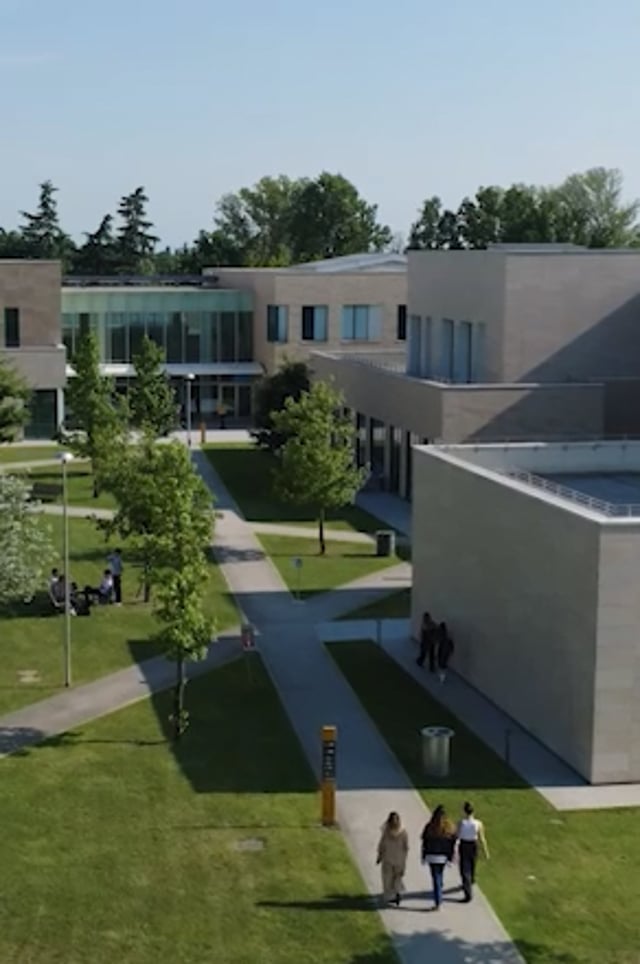The joint PhD Programme in Personalized caRe and Innovation in Medicine and Engineering (PRIME), based on the well-established partnership between Humanitas University and Politecnico di Milano, aims to train a new generation of researchers and innovators in biomedical engineering, clinical research, and health sciences. This highly interdisciplinary programme equips students with the knowledge and skills needed to tackle current and future healthcare challenges, with a strong focus on precision medicine and further research developments to support sustainable and equitable healthcare.
Programme Overview
The PhD builds on the close collaboration between Humanitas University and Politecnico di Milano, both internationally recognized for excellence in education and research. This partnership allows students to engage in joint research projects and benefit from co-supervision by experts from both institutions. The programme also encourages international experiences, with opportunities to carry out research abroad or in collaboration with major industry partners, thanks to established connections with leading research and clinical institutions, hospitals, and companies worldwide.
For those interested in leading innovation at the intersection of engineering and medicine, the PRIME PhD Programme offers a dynamic and stimulating academic environment to develop advanced expertise and make meaningful contributions to the future of personalized healthcare.
The educational path combines engineering, biology, medicine, and data science, enabling students to develop innovative solutions that enhance diagnostics, therapies, and patient care. Research projects cover a broad range of topics, such as digital health, omics, biomaterials, biosensors, artificial intelligence, computational modeling, and medical devices. Each student follows a personalized research track, focusing on either computational modeling and AI or medical technologies and systems.
The standard duration of the program is three years. PhD candidates will engage in research addressing fundamental biomedical science or clinical challenges, exploring both basic and applied medical sciences. Students will bridge the gap between theoretical discoveries and practical clinical solutions, gaining advanced knowledge of techniques such as in vivo, in vitro, in silico, and artificial intelligence, as well as their integration into the development of new medical technologies. Research areas include, but are not limited to, digital health, omics, cell-based models, physiological systems, biomaterials, and biosensors. The program offers two main paths: one focused on computational modeling and AI techniques, and the other on medical technologies, devices, and systems. This dual-path approach ensures that graduates are well-equipped to innovate across a wide range of healthcare technologies and treatment strategies.
PhD candidates will conduct studies, publish their findings in peer-reviewed journals, and submit their doctoral dissertation for approval by the PhD Board and two external referees.
PhD Coordinator: Prof. Maurizio Cecconi
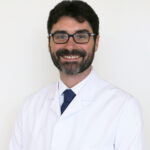
Places available
4 places
The number of available places and/or scholarships may increase in the event that external funding becomes available by the deadline set for the completion of the call application procedure.
Language
English
Duration
3 years
Beginning of teaching activities
1st December 2025
Application deadline
18th July 2025
Contacts
For further information you can contact phd@hunimed.eu
Didactic Activities
To strengthen their research skills, during the first 2 years, PhD candidates are expected to attend core courses. In addition, PhD candidates will be able to attend other courses within Inter, Multi and Trans-disciplinary activities offered by both universities or external institutions.
They also participate in seminars, workshops, and international conferences to enrich their scientific knowledge and professional skills. Each student is supported by a supervisor and a tutor and is responsible for developing and completing an original research project that bridges basic science and clinical application.
Career Opportunities
Choosing to pursue a PhD in Personalized caRe and Innovation in Medicine and Engineering opens up a wide range of career opportunities, both within and beyond academia. While many graduates choose to continue in university research and teaching, an increasing number are building successful careers in clinical research centers, hospitals, diagnostic labs, biotech and pharmaceutical companies, public health organizations, private industry, creation of start-ups and spin-offs. The growing emphasis on research and innovation in the private sector has led many companies to seek highly trained professionals, creating new roles where PhD graduates can apply their advanced skills and expertise.
This diverse career landscape allows students to shape their professional paths according to their interests—whether in academic research, healthcare, industry, or entrepreneurship.
Career opportunities may include:
- Universities and Research Institutions
- Hospitals and Healthcare Facilities
- Diagnostic and Testing Laboratories
- Public Health Agencies
- Regulatory Consulting Firms
- Clinical Research Organizations (CROs)
- Pharmaceutical, Biotech, and Medical Device Companies
- Healthcare Technology and IT Firms
- Telemedicine Providers
- Health Insurance Companies
- Health Data Analytics Organizations
- Genomics and Personalized Medicine Companies
- Start-ups and Spin-offs in the Biomedical Field
Admission Requirements
Admission is open to Italian and international candidates holding a Master’s degree with at least five years of university education. Candidates may be admitted to the PhD programme without age or nationality restrictions.
Knowledge of the English language is required through language certification assessed by the Commission or achievement of a degree in English.
Selection is based on the evaluation of the academic curriculum, a letter of motivation and an interview.
Further details can be found in the call for applications
Fees and Scholarships
PhD students are required to pay an annual fee for access and attendance, set at €250,00 for the academic year 2025/2026, including the regional tax and stamp duty.
Academic Board
PhD coordinator: Professor Maurizio Cecconi
PhD vice-coordinator: Professor Andrea Aliverti
| Name | Principal Affiliation | Department | |
| Aliverti Andrea | Politecnico di Milano | Electronics, Information and Bioengineering | andrea.aliverti@polimi.it |
| Capolongo Stefano | Politecnico di Milano | Architecture, Construction Engineering and Built Environment | stefano.capolongo@polimi.it |
| Cecconi Maurizio | Humanitas University | Biomedical Sciences | maurizio.cecconi@hunimed.eu |
| Cento Valeria | Humanitas University | Biomedical Sciences | valeria.cento@hunimed.eu |
| Colosimo Bianca Maria | Politecnico di Milano | Mechanical Engineering | biancamaria.colosimo@polimi.it |
| Condorelli Gianluigi | Humanitas University | Biomedical Sciences | gianluigi.condorelli@hunimed.eu |
| Dedè Luca | Politecnico di Milano | Mathematics | luca.dede@polimi.it |
| Dubini Gabriele Angelo | Politecnico di Milano | Chemistry, Materials and Chemical Engineering ‘Giulio Natta | gabriele.dubini@polimi.it |
| Greco Massimiliano | Humanitas University | Biomedical Sciences | massimiliano.greco@hunimed.eu |
| Jurman Giuseppe | Humanitas University | Biomedical Sciences | giuseppe.jurman@hunimed.eu |
| Lleo de Nalda Ana | Humanitas University | Biomedical Sciences | ana.lleo@hunimed.eu |
| Loiacono Daniele | Politecnico di Milano | Electronics, Information and Bioengineering | daniele.loiacono@polimi.it |
| Masella Cristina | Politecnico di Milano | Management Engineering | cristina.masella@polimi.it |
| Occhetta Paola | Politecnico di Milano | Electronics, Information and Bioengineering | paola.occhetta@polimi.it |
| Piscuoglio Salvatore | Humanitas University | Biomedical Sciences | salvatore.piscuoglio@hunimed.eu |
| Rusconi Roberto | Humanitas University | Biomedical Sciences | roberto.rusconi@hunimed.eu |
Research Topics a.y. 2025/2026
| TOPIC ID | RESEARCH SUPERVISOR | RESERACH CO-SUPERVISOR | MAIN FACILITY | PROJECT TITLE |
|---|---|---|---|---|
| PRIME1 | Ana Lleo De Nalda Humanitas University | Paola Occhetta DEIB, Politecnico di Milano | Humanitas University – Laboratory of Hepatobiliary Pathology | Cholangiocarcinoma-on-chip: from molecular pathogenesis to precision medicine. |
| PRIME2 | Alessandro Zerbi Humanitas University | Francesco Cellesi Francesco De Gaetano Politecnico di Milano | Humanitas University – 3D Bioprinting Lab; Pancreatic Surgery Unit | Biomechanical Characterization of Pancreatic Tissue and Development of Adhesives for for Pancreatic Post-Operative Fistola Prevention |
| PRIME3 | Paola Occhetta DEIB, Politecnico di Milano | Ana Lleo De Nalda Humanitas University | Politecnico di Milano – Department of Electronics, Information and Bioengineering | Development of Advanced Microfluidic Platforms for Cardiac Tissue Monitoring and Mechanotherapy |
| PRIME4 | Roberto Rusconi Humanitas University | Giuseppe Maria Paternò Politecnico di Milano | Humanitas University, Department of Biomedical Sciences – Applied Physics, Biophysics and Microfluidics Lab | Mechanostimulation and antibiotic response in biofilm-forming bacteria under fluid flow |
| PRIME5 | Capolongo Stefano Politecnico di Milano | Elena Azzolini Humanitas University | Politecnico di Milano – Department ABC, Design & Health Lab, who collaborating center on Design & Health | Innovative tools for Future Health Systems within Personalized Care and Precision Medicine Scenario |
| PRIME6 | Alessandra AngelucciAndrea AlivertiPolitecnico di Milano | Massimiliano GrecoMaurizio Cecconi Humanitas University | Politecnico di Milano Department of Electronics, Information and Bioengineering (DEIB) | ECO-WEAR: An ecosystem of wearable devices for the perioperative monitoring of day surgery patients |
| PRIME7 | Giuseppe Jurman Maurizio Cecconi Massimiliano Greco Humanitas University | Andrea Aliverti Alessandra Angelucci Politecnico di Milano | Humanitas University Dipartimento di Scienze Biomediche Via Rita Levi Montalcini 4, Pieve Emanuele (MI) | Perioperative kinetic evaluation using data from wearable devices |
| PRIME8 | Marco Domenico Santambrogio Politecnico di Milano | Franca Barbic Humanitas University | Politecnico di Milano DEIB NECSTLab | Adaptive Cognitive Enhancement Framework: Personalized Mental Support through Multimodal Data Analytics |
